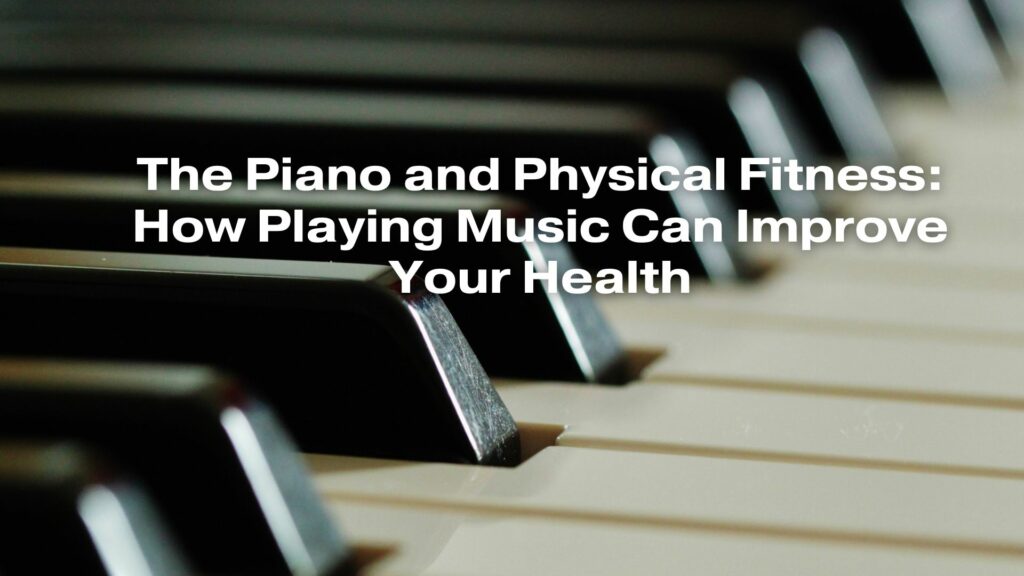While playing the piano is often associated with intellectual and artistic pursuits, it can also have a positive impact on physical fitness and overall health. In this article, we’ll explore how engaging with the piano and making music can contribute to improved physical well-being.
1. Hand and Finger Strength:
- Playing the piano requires finger strength and dexterity. Regular piano practice can help build and maintain strong, nimble fingers.
2. Fine Motor Skills:
- Precise hand-eye coordination and finger control are integral to piano playing, enhancing fine motor skills that can be beneficial in various aspects of physical activity.
3. Posture Improvement:
- Proper piano technique encourages good posture. Maintaining an upright posture while playing can have a positive impact on your overall spinal health.
4. Stress Reduction:
- Engaging in music, including piano playing, can be a form of stress relief, contributing to a reduction in stress-related physical ailments.
5. Cognitive Health:
- Playing the piano keeps the mind active, potentially contributing to cognitive health, which is closely linked to overall well-being.
6. Emotional Well-being:
- Music can enhance emotional well-being, helping to reduce symptoms of depression and anxiety that can impact physical health.
7. Respiratory Control:
- Understanding and controlling your breath while playing the piano can enhance respiratory function, particularly helpful for musicians who sing or play wind instruments.
8. Mind-Body Connection:
- Playing the piano fosters a strong mind-body connection, as your mental processes guide your physical movements and actions.
9. Stress-Induced Tension Relief:
- Music, especially soothing piano compositions, can help relieve tension and reduce physical symptoms associated with stress, such as muscle tightness.
10. Relaxation Response: – Listening to piano music can trigger the relaxation response, which may contribute to reduced blood pressure and improved heart health.
11. Enhanced Recovery: – Engaging with music can aid in post-exercise recovery by promoting relaxation and reducing muscle soreness.
12. Pain Management: – Music therapy, including piano playing, can be a helpful tool for managing chronic pain conditions.
13. Flexibility and Coordination: – Playing the piano involves complex hand movements and multitasking. This enhances overall coordination and flexibility.
14. Enjoyable Physical Activity: – Learning to play the piano and creating music can be a highly enjoyable form of physical and mental activity, contributing to a sense of well-being.
While piano playing may not replace traditional physical fitness activities, it can be a valuable addition to a holistic approach to health. Whether through the physical demands of playing, the stress-reducing qualities of music, or the overall sense of well-being it provides, engaging with the piano can contribute to improved physical fitness and health.


